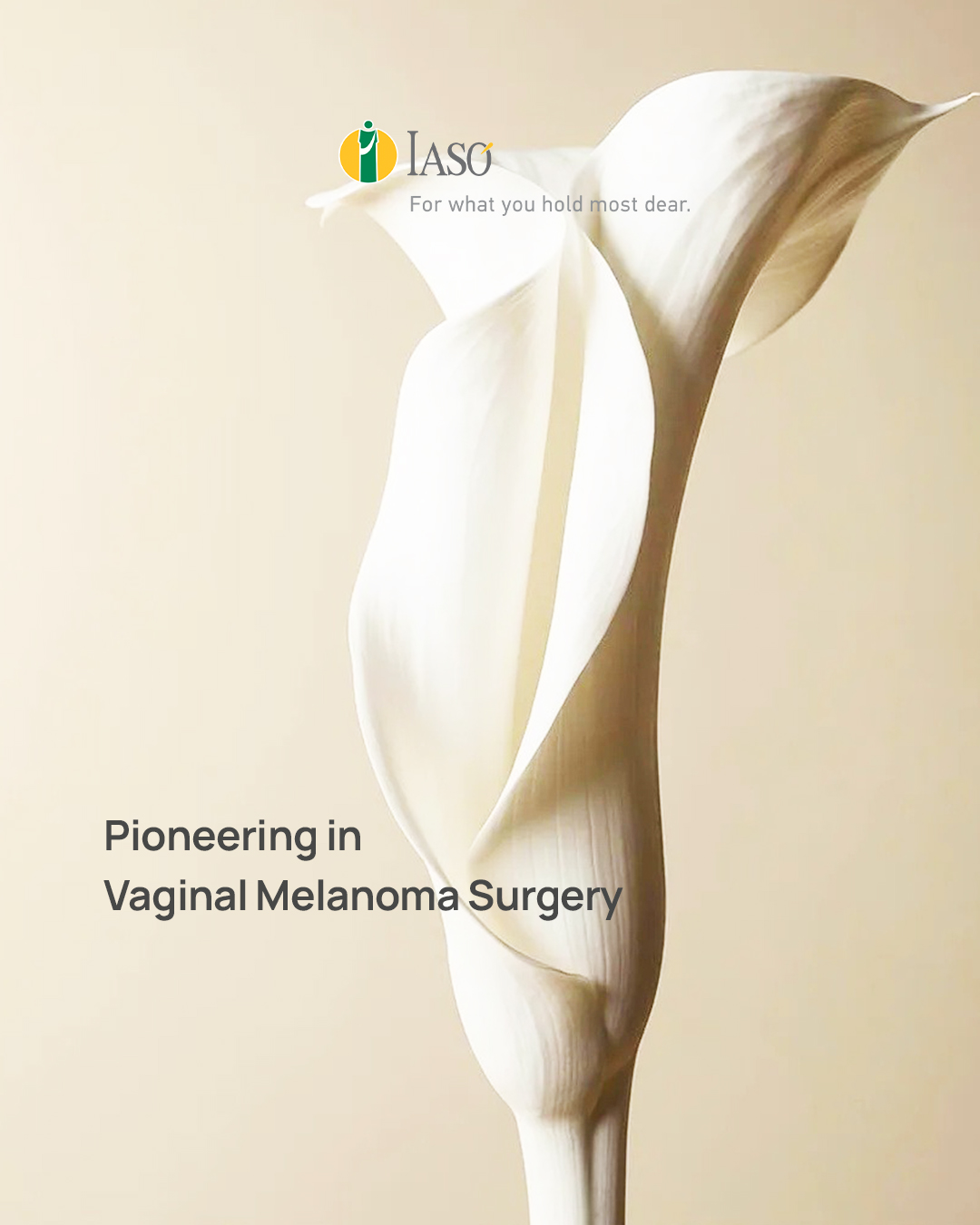IASO General Clinic at the forefront of developments with the Conference"Epidemics - Pandemics that shook humanity”

IASO General Clinic organized with great success a One-Day Conference on the topic "Epidemics - Pandemics that shook humanity", which took place on Saturday, October 15th, at 09:30 a.m., at IASO Hospital’s Event Hall.
Specially selected and distinguished scientists, such as Mr. Sotirios Tsiodras, Mr. Stefanos Geroulanos, Mr. Marios Lazanas, Ms. Theodota Liakopoulou-Tsitsipi, Ms. Athina Linou, Mr. Georgios Samonis, Mr. Georgios Saroglou, Mr. Nikolaos Smyrnis, Mr. Kyriakos Souliotis, participated in the One-Day Seminar with speeches.
The Conference’s Moderator was Mr. Marios K. Lazanas, Internist - Infectious Disease Specialist, Director of the Internal Medicine – Infectious Disease Department of IASO General Clinic and Chairman of the Infection Control Committee.
The following topics were discussed at the conference:
Epidemics in the Ancient and Medieval World (Stefanos Geroulanos)
Professor Stefanos Geroulanos, MD, PhD, Dr.h.c., Professor of Surgery at the University of Zurich, & former Professor of History of Medicine at the University of Ioannina, Former President of the Global Doctors' Hippocratic Institute, Ionian Academy Member (1808), referred to prehistoric archaeological findings in China and the Eurasian Steppes, as well as the 1st recorded outbreak of smallpox during the Hittite-Egyptian War of 1300 BC, which resulted in the world's first known peace treaty, the Treaty of Kadesh, in 1274 BC. He then referred to the plague of the Philistines, which is mentioned in the Old Testament, the plague during the Trojan War, the plague of Athens, which we now know is due to Salmonella enterica serovar Typhi, the Antonine plague, which destroyed the Western Roman Empire and the Justinianic plague, the consequence of which was the spread of Mohammedanism. Finally, he mentioned the plague of the first Crusades (1092-1204) and the Black Death (1347-1352), which exterminated 25-50 million Europeans within 5 years, almost half of the population of Europe and continued until 1700. From the epidemics mentioned above, the parallels as well as similar prevention measures to those taken for the COVID pandemic were highlighted.
Covid-19 Pandemic (Sotirios Tsiodras)
The Professor of Infectious Disease Pathology at the University of Athens (NKUA) and key member of the expert committee on COVID, Mr. Sotiris Tsiodras, presented his assessments on the evolution of the pandemic, pointing out that there are four scenarios. According to the first scenario, the coronavirus variants will continue to evolve, which will lead to declining immunity. In this case, it is certain that we will need new vaccines. In particular, as he mentioned, in the next period we will be concerned with the three subvariants of the Omicron mutation, namely the BA.2.275.2 strain (which escapes the protection of monoclonal antibodies), the BA.4.6 strain (which is beginning to be dominant in the USA) and the XBB strain (predominant in Singapore). In our country, for the time being, the Omicron mutation and the BA.5 subvariant (by 98%), for which we now have protection through the updated vaccines, are completely dominant.
According to the second scenario, which is the most feared one, there will be a parallel circulation of coronavirus and the flu. In this case, it is certain that there will be consequences for people over 60 years old, which is why the population of this age group must be vaccinated for both viruses immediately. There is already an outbreak of influenza in young people, while a viral load has also been detected in sewage.
The third scenario predicts that coronavirus vaccines and treatments may not be used to their full potential. In order to prevent such a development, the mobile units of the National Public Health Organization (EODY) should be used, so that the antiviral drugs are provided to those in need of them.
Finally, the fourth scenario, which is also the most optimistic one, predicts: a) that all the strains that will ensue will originate from the Omicron mutation, against which we have a very high percentage of immunity, but also a weapon, the updated vaccine, and b) that societies seem ready for life to return back to normal, having accepted that the measures are necessary and concern mainly the vulnerable and the elderly. At the same time, Mr. Tsiodras also referred to the issue of the spreading of false information in regard to the coronavirus and vaccines in his speech.
Smallpox(AthinaLinou)
Ms. Athina Linou, MD, MPH, PhD, FACE, Professor of Epidemiology, President of Prolepsis Institute, referred to smallpox, as well as the contribution of vaccines to its eradication.
Smallpox was one of the most important diseases that affected humanity, throughout time. There are indications that it first appeared 3 to 4 thousand years ago. It is estimated that it led to the death of 300 to 500 million people. Smallpox is the only disease that was eradicated in 1977 from the Earth.
It has been used as a means of biological warfare and despite the fact that transmissibility has been eradicated, the prolonged incubation time along with the retention of the smallpox virus in specific centers, enables the virus to be used as a biological weapon, despite the fact that the centers in which the virus is kept are under the supervision and control of the World Health Organization (WHO).
Ms. Linou emphasized that, unfortunately, there is no training for neither the doctors nor communication specialists in the way health issues should be communicated, in order to gain the trust of society in matters of health protection and prevention.
Poliomyelitis (Theodota Liakopoulou-Tsitsipi)
Ms. Theodota Liakopoulou-Tsitsipi, M.D., Ph.D., Director of IASO Children's Hospital Medical Service, Director of the 1st Pediatric Clinic of IASO Children's Hospital, referred to the historical course of Poliomyelitis and the serious health problems it caused to humanity. The discovery of vaccines, which dramatically reduced the incidence through an organized program of mass vaccination on a global scale, resulted in the elimination of the wild poliovirus from all countries of the world, except Afghanistan and Pakistan, where it is still endemic. Despite these achievements, unfortunately, there have recently been cases of poliomyelitis and the virus, mainly vaccine-derived poliovirus, has been found in sewage in developed countries. The Global Polio Eradication Initiative (GPEI) is implementing a new program starting this year to eradicate the disease by 2026, by using new vaccines and practices, and then follow-up in order to maintain a polio-free world. New vaccines, next-generation vaccines and antiviral drugs are expected to play an important role.
The flu throughout the ages (Georgios Saroglou)
Mr. Georgios Saroglou, Professor Emeritus of Infectious Disease Pathology, National and Kapodistrian University of Athens (NKUA) and former President of the Hellenic Center for Disease Control and Prevention (KEELPNO), referred to the Flu throughout the ages, and in particular, he mentioned that the respiratory infection called influenza, which is due to infinite variants of the Influenzae virus, has never stopped causing people to contact the disease, with thousands of deaths per year, throughout the centuries. Like "JANUS", it can take many forms, sometimes as a pandemic with millions of deaths, sometimes as a seasonal annual epidemic with hundreds of thousands of deaths worldwide, and sometimes as a zoonosis in the form of an epidemic, in a specific geographical area (bird flu, swine flu, etc.).
The airplanes of the technological civilization and the migratory birds in nature are the intermediary carriers of the virus in its dispersion around the globe. From the suffering of influenza epidemics, humanity also learned the following Public Health lessons: Repeated annual vaccination, the universal use of face masks as a public health measure, the implementation of point-of-care testing in Emergency Departments and in the community , the preventive antiviral chemoprophylaxis in vulnerable population groups and the joint public health actions of all countries of the world under the World Health Organization (WHO), in accordance with the International Health Regulation.
HIV infection (Marios K. Lazanas)
Mr. Marios K. Lazanas, Director of the Internal Medicine – Infectious Disease Department of IASO General Clinic, Chairman of the IASO Group Infection Control Committee, President of the Hellenic Society for the Study and Control of AIDS and the Conference’s Moderator, referred to HIV infection. It has been 40 years since the appearance of HIV infection and it is estimated that approximately 40 million people live among us, having an HIV infection. People of all ages, regardless of gender, skin color, economic status, religion. An infection that, apart from the millions of deaths, has left behind social, economic, medical inequalities, but above all this, it has left the stigma, for which a strong effort is being made, in order to combat it. What has changed in HIV infection? Intensive information, systematic prevention programs, administration of antiretroviral therapy, both for treatment and prevention, have reduced new infections and deaths by approximately half. Unfortunately, the lack of a vaccine, in relation to the COVID-19 epidemic, has failed to further reduce infections.
The financial impact of pandemics (Kyriakos Souliotis)
Mr. Kyriakos Souliotis, Professor of Health Policy and Dean of the School of Social and Political Sciences of the University of Peloponnese, referred to the economic and social effects of the pandemic, emphasizing their multidimensional nature. Commenting on the management of the pandemic, he highlighted the quick reflexes of our country in its initial phase and noted that the need to protect citizens from the pandemic, alongside maintaining a level of economic and social activity, on the one hand, made the relevant decisions even more complex and on the other hand "allowed" the formulation and dissemination of unscientific views that caused confusion among citizens, in relation to the observance of the measures. Finally, he referred specifically to the supranational dimension of the pandemic and the crisis of solidarity between states in its initial stages, which was followed by cooperation on the issue of vaccination and he proposed the creation of immediate response mechanisms to corresponding future threats, at both a national and supranational level.
The psychological impact of pandemics (Nikolaos Smyrnis)
Mr. Nikolaos Smyrnis, Professor of Psychiatry, School of Medicine, National and Kapodistrian University of Athens (NKUA), Director, 2nd University Psychiatry Clinic, General University Hospital "ATTIKON", referred to the great pandemics that left their mark on civilization, from the ancient times to the present day, and changed the course of human history. Although their effects on human history have been so significant, the systematic study of their effect on the population’s mental health has not been the subject of systematic study, until very recently. The most important contribution to this study was the recent COVID-19 pandemic. In his presentation, he systematically analyzed the effects of pandemics on mental health, that can be separated into the specific effects of the infectious agent of the pandemic on the central nervous system, which are divided into acute (during the infection and its remission) and long-term (which can be detected after several years), as well as non-specific effects, such as the effects of the quarantine on the mental health of the population, the effects on the mental health of those who went through being severely ill from the infectious agent of the pandemic (survivors), the effects on the mental health of health workers and other health professionals who are on the front lines of dealing with the pandemic, as well as the effects on the mental health of the families and loved ones of the victims of the pandemic. The psychological effects on the population of vaccination programs for dealing with the pandemic are also of interest.
The impact of pandemics in Art (Georgios Samonis)
Mr. Georgios Samonis, Oncologist - Infectious Disease Specialist, Professor Emeritus of Internal Medicine, referred to the impact of pandemics in Art. The depiction of human suffering became a necessity since the beginning of human existence.
Pandemics, after afflicting societies with hundreds of deaths, left indelible marks in the history of the world. Portraying these tragic events was a need for expression that began quite early. Many of these works were lost, but others, newer ones, survived and convey to us the atmosphere of human pain and misery in the face of something so destructive, that the human mind is unable to comprehend and, above all, to cope with. In these cases, art, and especially painting, acts psychotherapeutically as a kind of "prayer" or "atonement". It is worth concerning ourselves with these depictions, which seem to describe the human drama and weakness in the face of illness, throughout time.
The Conference was attended in person, but also via Live Streaming. You can watch everything that took place through the following link: https://bit.ly/3CIDwfq

Starting from the left: Mr. Aristeidis Antsaklis, MD, PhD, FRCOG (Hon.), Professor of Obstetrics / Gynecology, Maternal-Fetal & Perinatal Medicine at the University of Athens (NKUA), Director of the IASO Maternal-Fetal and Perinatal Medicine Department, Chairman of the IASO Scientific Council; Mr. Sotirios Tsiodras, Internist-Infectious Disease Specialist, Professor of Internal Medicine-Infectious Diseases, 4th University Internal Medicine Clinic, University of Athens (NKUA), General University Hospital "Attikon"; Mr. Marios Lazanas, Internist - Infectious Disease Specialist, Director of the Internal Medicine – Infectious Disease Department of IASO General Clinic, Chairman of the IASO Group Infection Control Committee, President of the Hellenic Society for the Study and Control of AIDS; Mr. Kosmas Vryonis, Obstetric Surgeon / Gynecologist, Doctor of the University of Athens, Director of IASO Medical Service; Dr. Georgios Stamatiou, Chairman of the IASO Group Board of Directors; Ms. Christina Tampourea, IASO Group Chief Commercial Officer (CCO).
For more journalistic information: Nancy Christopoulou, IASO Group Commercial & Marketing Department, tel.: 210 6383917, E-mail: [email protected]







